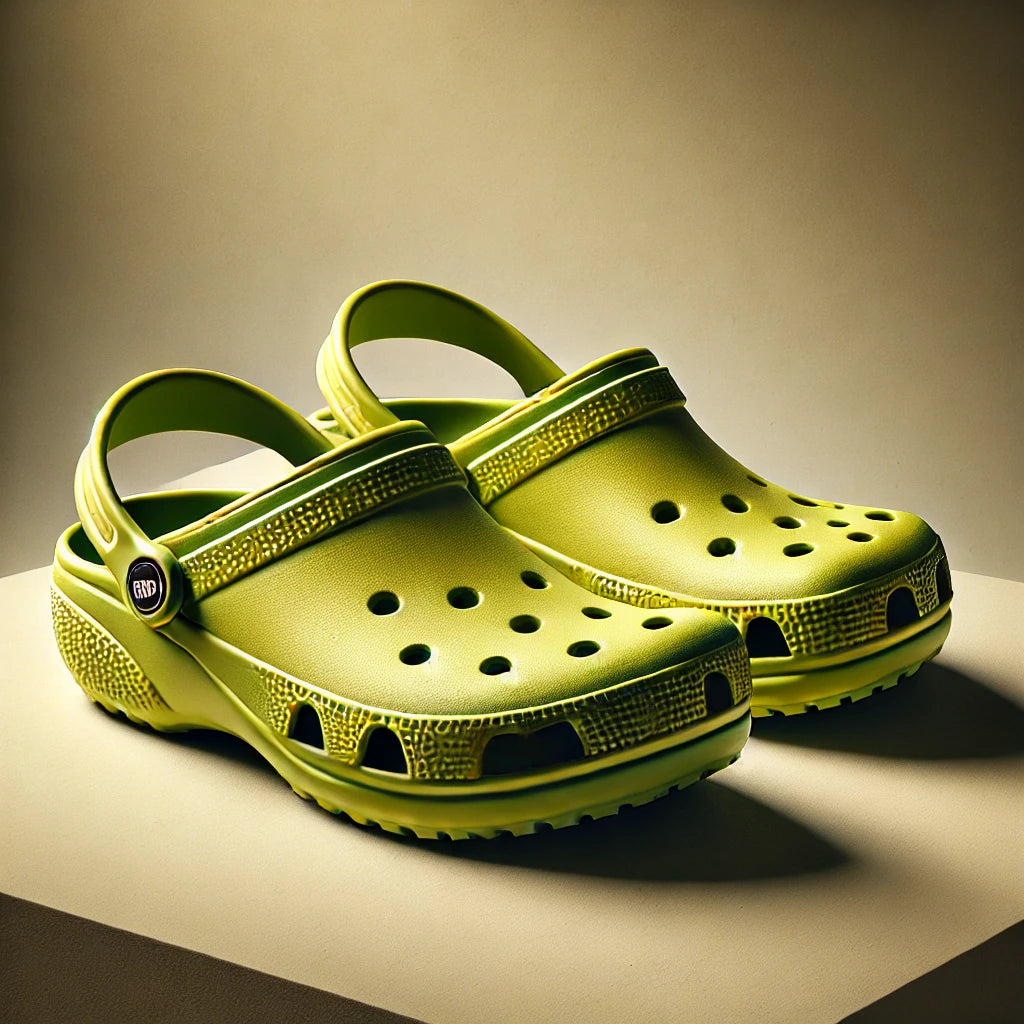
Are Crocs Good or Bad for Your Feet?
Share
In the world of footwear, few brands have sparked as much debate as Crocs. Known for their distinctive clogs, bright colors, and lightweight design, Crocs have a polarizing effect on people—either they love them for their comfort or criticize them for their aesthetics and perceived lack of support. But when it comes to foot health, the question remains: Are Crocs good or bad for your feet?
The Good: Comfort, Breathability, and Practicality
-
Comfort & Cushioning: One of the main reasons people turn to Crocs is the comfort factor. Made from Croslite™, a proprietary closed-cell resin, Crocs provide a cushioned feel that can make walking and standing for long periods much more comfortable than some traditional shoes. The material is soft and pliable, conforming to your foot shape, which is why many people, especially those with foot pain or sensitive feet, enjoy wearing them.
-
Breathability: With their open-toe design and ventilation holes, Crocs are breathable, making them ideal for keeping feet cool and dry. This is particularly beneficial in hot and humid climates, where sweaty feet can lead to discomfort and even fungal infections.
-
Easy to Clean & Practical: Crocs are easy to wash and dry quickly, making them a practical choice for people who work in environments prone to spills or dirt, such as healthcare professionals, chefs, or those in gardening and outdoor activities.
-
Roomy Fit & Flexibility: The generous fit of Crocs allows for plenty of toe room, which can help prevent conditions like bunions or hammertoes. Their flexibility also means less restriction on foot movement.
The Bad: Limited Support and Overuse Issues
-
Lack of Arch Support: While Crocs offer cushioning, they lack the structured arch support required for many people. For those with flat feet or specific arch issues, Crocs might exacerbate pain rather than relieve it. People with high arches or plantar fasciitis often need shoes with more structured support to distribute weight evenly.
-
Instability Concerns: The loose fit of Crocs, especially the slip-on models, can lead to instability. Without a secure heel or ankle support, users may experience issues with balance or even suffer injuries, such as sprains, from the foot sliding around inside the shoe.
-
Not Ideal for Long-Term Wear: Podiatrists often advise against wearing Crocs for extended periods. While they may be comfortable for short-term use, long-term use can result in foot pain or other conditions. This is because Crocs do not provide enough support for rigorous activities or prolonged standing, which can strain the feet, ankles, and even knees over time.
-
Inadequate for High-Impact Activities: Crocs are not designed for running, hiking, or other high-impact activities. Using them for these purposes can lead to a higher risk of injury due to their lack of support and stability.
When to Wear Crocs
Given their pros and cons, Crocs can be beneficial when used appropriately. They’re ideal for short-term wear, casual outings, and specific use cases like being around water, gardening, or quick trips outside. People who have foot pain and are looking for something soft and cushioned may find temporary relief with Crocs. However, they should not replace shoes designed for specific foot conditions or sports activities.
When to Avoid Crocs
If you have a foot condition that requires structured support, such as plantar fasciitis, flat feet, or high arches, Crocs may not be the best choice for you. Similarly, if you engage in activities that require more stability and support, consider using a shoe specifically designed for that purpose.
Finding the Right Balance
If you love the comfort and convenience of Crocs, consider using them in moderation and pairing them with other supportive footwear for more demanding activities. There are also models of Crocs with enhanced arch support, so choosing one of these options could be a better alternative if you want the same comfort with a bit more stability.
Conclusion
Crocs have both advantages and drawbacks when it comes to foot health. Their comfort, breathability, and ease of use make them a favorite for many, but their lack of support and stability means they should be worn with caution. The key to enjoying Crocs without compromising your foot health is to wear them in the right situations and avoid relying on them for long-term or high-impact activities. As with any footwear, what matters most is choosing what fits your specific needs and making sure your feet are comfortable, supported, and pain-free.
